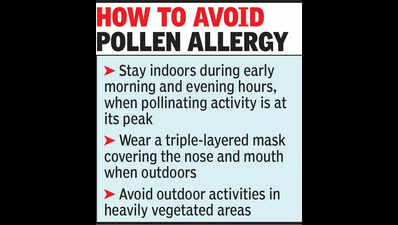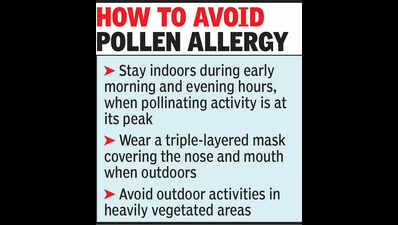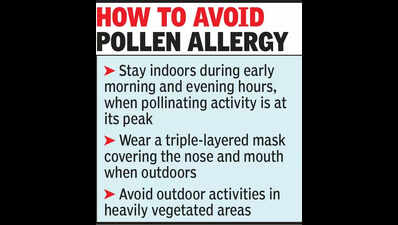- News
- City News
- jaipur News
- Chilbil pollen detected in Jaipur first time this season
Trending
Chilbil pollen detected in Jaipur first time this season
Jaipur: If you have burning in the eyes and rashes on the skin, or nasal congestion and discharge or breathing difficulties and wheezing, it could be beacuse of Holoptelea integrifolia pollen—known for its strong allergenic properties—which was detected in Jaipur's air for the first time this year Monday.
Also referred to as the chibil tree or bander ki roti, Holoptelea is the most allergenic pollen-producing plant in Jaipur, with its airborne concentration remaining high for one to two months.
Holoptelea pollen detection is carried out using a Burkard pollen counter, an advanced instrument for monitoring airborne pollen levels. "Holoptelea pollen levels peak during early morning and evening hours, making it essential for allergy-prone individuals to take preventive measures," Dr Nishtha Singh, director of Asthma Bhavan, said.
Holoptelea trees are abundant in Jaipur, commonly found lining streets and thriving in public parks. Many morning walkers and unsuspecting residents experience allergy symptoms without realising that the source lies in these widespread trees. Despite its significant health impact, awareness about Holoptelea pollen allergies remains limited, and govt bodies continue endorsing its plantation, unknowingly exacerbating the issue.
Dr Singh added, "Pollen-related allergies typically persist until March end, emphasising the need for preventive measures. These airborne pollens trigger allergic conditions, particularly affecting those with allergic rhinitis (AR) and asthma. During peak pollination periods, the high concentration of airborne pollen grains can significantly affect sensitive individuals."
How to avoid pollen allergy
Stay indoors during early morning and evening hours, when pollinating activity is at its peak
Wear a triple-layered mask covering the nose and mouth when outdoors
Avoid outdoor activities in heavily vegetated areas
End of Article
FOLLOW US ON SOCIAL MEDIA












